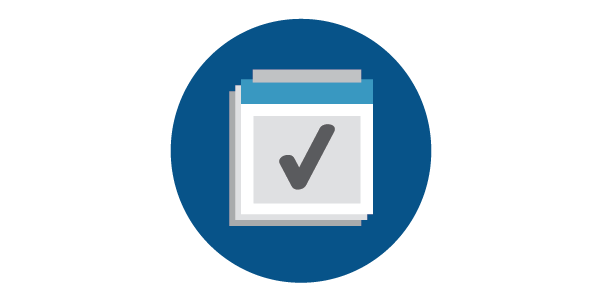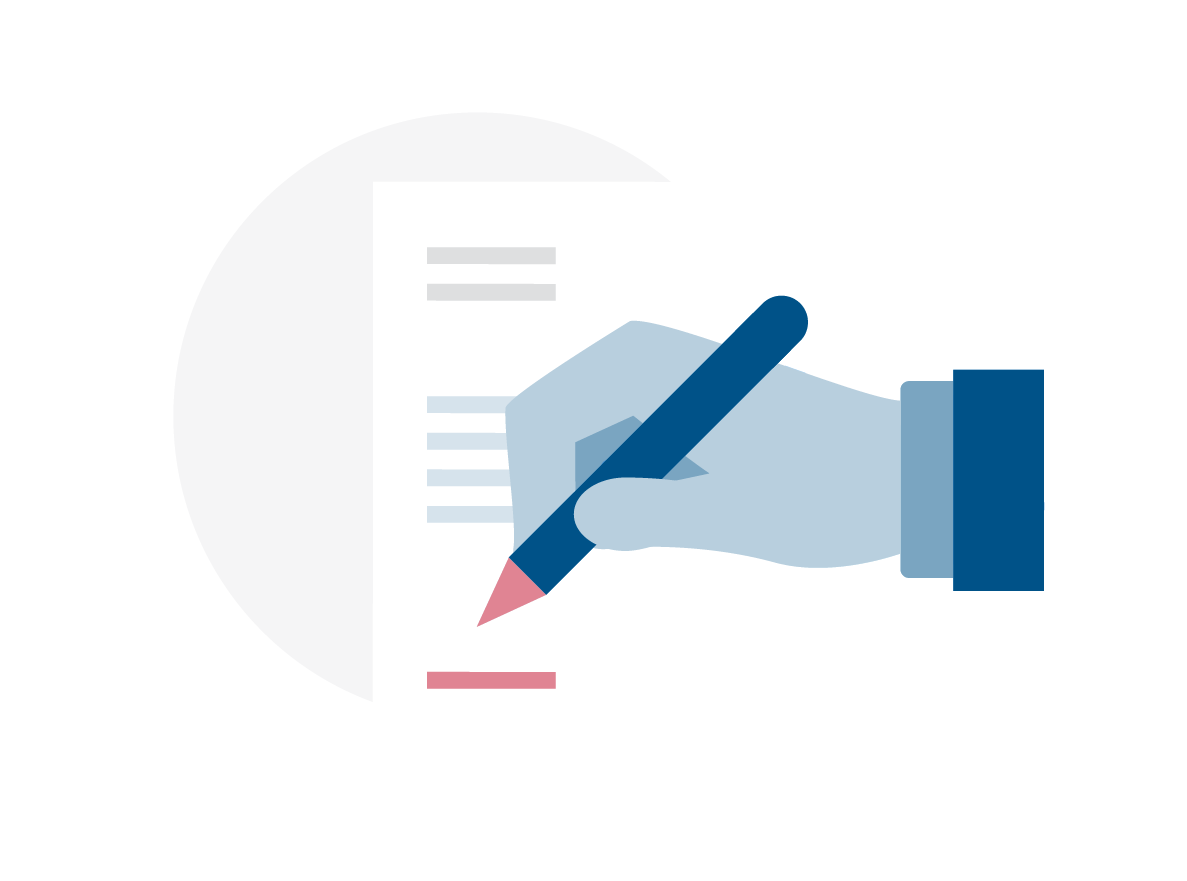Learn about the four-step process your company or organization can follow to do business with FEMA, in accordance with the Robert T. Stafford Act.

Support Hurricane & Wildfire Recovery
If you are interested in contracting with FEMA or the government to support recovery from Hurricane Helene and Hurricane Milton or the California Wildfires, read the information on this page carefully and contact FEMA's Industry Liaison Program for more information.
1. Talk to your Local APEX Accelerator
Government contracting can be complex, especially for small businesses getting involved for the first time. Fortunately, there are offices ready to help Government contracting can be complex, especially for small businesses getting involved for the first time. Fortunately, there are offices ready to help you: the National APEX Accelerator Alliance (NAPEX). There are counselors in over 300 APEX Accelerator locations who will work with you to understand key steps and strategies for federal, state, and local government contracting. The National APEX Accelerator Alliance also provides guidance with SAM.gov registration.
2. Register in System for Award Management (SAM)
After consulting with an APEX Accelerator advisor, we encourage you to register to do business with the federal government through the System for Award Management (SAM.gov). Registration is required, must be renewed annually, and is free.
If you want to apply for federal awards as a prime awardee, you need a registration. To do so, set up a SAM.gov account (Your username and password are managed by Login.gov). Then, validate your entity as unique and existing to get a Unique Entity ID (UEI number). If your principal business is located in the United States or U.S. territories, you will need your Tax Identification Number(TIN), which you can request by visiting www.irs.gov, to do so. Once you obtain your UEI number, you will then complete the SAM.gov registration modules to get a Commercial and Government Entity (CAGE) Code. Fully registered business entities will have both a UEI number and a CAGE Code. Once registered, be sure to renew your registration annually.
To view a summary of SAM.gov registration, please visit SAM.gov | Entity Registrations. To view an entity registration checklist, please visit SAM.gov | entity checklist. For answers to common questions, live chat, or phone support, please visit the Federal Service Desk.
Of relevance to disaster contracting, note that within the Assertions module of SAM.gov registration, you will indicate whether you wish to appear in the search known as the Disaster Response Registry, which contracting officials may use to identify companies with disaster response capabilities.
3. Understand FEMA’s Mission and Goals
FEMA’s mission, as authorized by the Robert T. Stafford Act, is to help people before, during and after disasters. To do so, FEMA maintains 32 Core Capabilities across 5 mission areas. When FEMA responds to a disaster, our goal is to contract with local businesses in the affected area, whenever practical and feasible. Because FEMA is a coordinating agency that also provides assistance to entities and individuals affected by a disaster, note that disaster contracting capabilities may also be sought by other federal agencies, State Emergency Management Agencies as well as tribal, territorial, and local governments. Note also that FEMA maintains pre-positioned or Advance Contracts, which may be transferred to local vendors when practical and feasible.
Top Commodities Procured for Disasters
Before starting the process to become a contractor with FEMA after a local disaster, review our list of most needed items to find areas where you can make the biggest impact.
- Infant/Toddler Products
- Durable Medical Equipment Kits
- Consumable Medical Supplies Kits
- Plastic Sheeting
- Tarps
- Blankets
- Comfort/ Hygiene Kits
- Water
- Meals
- Forklift Rentals
- Cargo Vans
- Security Guard Services
- Generators
- Cots
- Joint Field Office Kit
- Leased Copiers
- Leased Generators
- Office Supplies
- Shredded Bins
- Portable Toilets
- Sign Language
- Temporary Labor
- Janitorial Services
For more information on the Commonly Used Sheltering Items (CUSI), please email with the subject "CUSI Information Request." Your inquiry will be reviewed and sent to applicable representatives.
4. Monitor Contracting Opportunity Sites
As you begin your search, understand that it is Private Sector responsibility to monitor and respond to contracting opportunities. Further, consider opportunities to work as a Prime Contractor as well as opportunities to work as a Subcontractor. Prime Contractors need to be registered in SAM.gov, as they would be working directly with a federal agency, whereas Subcontractors may not necessarily need to be registered in SAM.gov, as they would be working for the Prime Contractor. Key sites to monitor for contracting opportunities include:
- SAM.gov where you can complete an advanced search to monitor opportunities by Federal agency, NAICS Code, place of performance, and more.
- The Acquisition Planning Forecast System (APFS) of the Department of Homeland Security (DHS), which provides a forecast of anticipated contract actions above $250,000.
Additional Resources

Find answers to Frequently Asked Questions about doing business with FEMA.
Transportation Programs
Are you part of the commercial transportation industry? Are you able to move items essential for saving and supporting lives after a disaster rapidly? Read about the possible transportation services opportunities.
Transitional Sheltering Assistance
Local hotels and motels can participate in FEMA’s Transitional Sheltering Assistance program, which offers rooms to disaster survivors seeking housing aid. Learn more about emergency lodging assistance.
Volunteer or Donate Goods
If your organization has goods or services to donate to disaster response and recovery efforts, learn how to contribute.
National Minority Supplier Development Council
The National Minority Supplier Development Council advances business opportunities for certified minority business enterprises and connects them to corporate members.
Small Business Program
FEMA has resources to assist small businesses in their pursuit of federal procurements and continuous learning of small business programs to include policies and procedures that affect small business federal contracting.
Debris Removal
Debris removal is often contracted locally after a disaster. If your company provides debris removal services, you can sign up with the Corps of Engineers Contractor Registry. You can also register your business information (including your capabilities and locations served).
Advanced Contracts
FEMA advance contracts are competed and awarded in advance of major disaster declaration. Search the advance contracts for goods and services.
Submit Capabilities or Request a Meeting
You can inform FEMA of your company's capabilities, or request a meeting with a FEMA representative, by submitting a Vendor Profile Form. There is no cost associated with submitting a Vendor Profile Form.

Fill Out the Vendor Profile Form
Please be specific about how your product(s) and/or service(s) can support FEMA’s mission.
Go to Vendor Profile Form
Please Note
The form is used to assist in secondary market research and is voluntary. Information supplied should not be proprietary or sensitive in nature.
You do not need a Vendor Profile Form to bid on a contract, but you do need to be registered in SAM.gov.
You do need to submit a Vendor Profile Form to request a meeting. There is no guarantee of a meeting, however your capabilities will be shared with the appropriate FEMA program.
Submission of the vendor profile form does not:
- Place you on a preferred list of vendors to be considered for procurements; FEMA does not maintain such a list.
- Guarantee contract award. Please continue to monitor contracting opportunity sites.
- Guarantee meeting with FEMA Representatives.
Contact
For all other inquiries related to doing business with FEMA, please contact the FEMA Industry Liaison Program.


